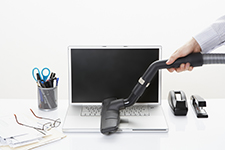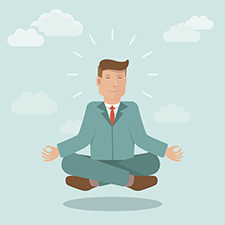April is a month of several health holidays, and we want to continue the month with a video focused on your workplace posture. Good posture is incredibly important to avoid long-term damage to your body.
Sitting at a desk for hours on end can result in musculoskeletal disorders. In fact, according to the Bureau of Labor Statistics, musculoskeletal disorders account for 31% of the total cases for all workers’ injuries.
Watch this video below to learn how to situate your workstation to maximize your posture.
When it comes to protecting your posture, simply being aware of what good posture looks like is be incredibly helpful. Try to do a “body check-in” every hour or so to make sure everything is aligned.




